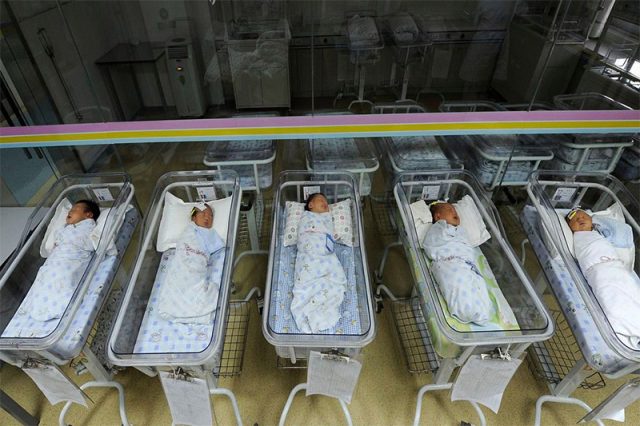
Beijing— Health authorities in China’s southwestern province of Sichuan will allow unmarried individuals to raise a family and enjoy benefits reserved for married couples, in the latest effort to bolster a falling birth rate.
RELATED: How China is seeking to boost its falling birth rate
The government dictates that only married women are legally allowed to give birth, but with marriage and birth rates having fallen to record lows in recent years, provincial authorities revamped a 2019 rule to cover singles who want to have children.
From Feb. 15, married couples and any individuals who want offspring will be allowed to register with the government in China’s fifth most populous province, with no ceiling on the number of children they can register for.
The measure aims to “promote long-term and balanced population development,” Sichuan’s health commission said in a statement on its website.
Until now, the commission had allowed only married couples who wanted to have up to two children to register with local authorities.
China’s population shrank last year for the first time in six decades, a historic turn expected to usher in a period of decline. That prospect is pushing authorities to roll out incentives and measures to boost the population.
READ: China’s population expected to start to shrink before 2025
A nationwide registry system for couples to register with local authorities ensures maternity insurance to cover medical bills, while letting married women keep their salary during maternity leave.
These benefits will now be extended to single women and men in Sichuan, which ranks seventh in the nation in terms of those older than 60, or more than 21% of its population, government figures show.
Much of China’s demographic downturn stems from its one-child policy imposed between 1980 and 2015.
—Reporting by Farah Master in Hong Kong and Albee Zhang in Beijing; Editing by Clarence Fernandez









